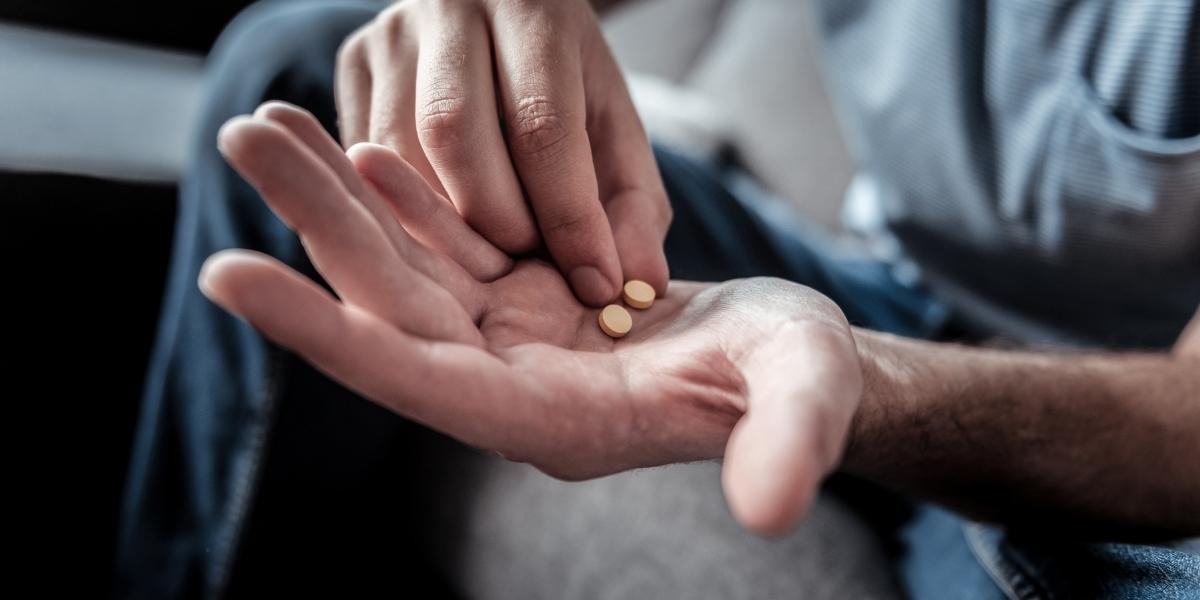Addiction vs. Dependence

The language around drug addiction and substance abuse treatment can be confusing. People frequently use words interchangeably; for instance, the term dependence in place of addiction and vice versa, but they are not the same.
It is true that dependence and addiction often co-exist and become intertwined, but they exist independently just as frequently. A person can become dependent on something without becoming addicted, and a person can have an addiction without being dependent on it.
Words and their meanings matter, especially regarding something as life-changing as medical diagnoses and substance abuse treatment. A misdiagnosis can lead to improper treatment, adverse outcomes, and unneeded suffering for the patient.
Medical and mental health professionals use the Diagnostic and Statistical Manual of Mental Disorders (DSM), comprised of peer-reviewed, scientifically backed information to help ensure accurate diagnoses and treatment programs for mental health disorders, including substance use disorders.
The DSM is updated to reflect up-to-date information as new information and effective treatment methods are discovered and proven. The fifth version, published in 2013, is the most recent addition, called the DSM-5.
One of the most significant changes in the DSM-5 is the elimination of the terms “substance abuse” and “substance dependence.” Previously, substance abuse referred to a mild or developing addiction, and dependence referred to moderate to advanced addiction. Many people frequently confuse these terms, and experts feel that physical dependence needs more distinction from the psychological aspects of addiction. Substance use disorders (SUDs) replaced both terms with an updated criteria list for diagnosing them.
Based on how many signs and symptoms a patient has from the 11 criteria for substance use disorders, their disorder is classified as mild, moderate, or severe.
This change also helped differentiate people who need professional treatment but do not have a debilitating addiction.
What Is Addiction?
The National Institute on Drug Abuse (NIDA) considers addiction “a chronic, relapsing disorder characterized by compulsive drug seeking and use despite adverse consequences.” In the United States, almost 38 million people suffer from alcohol and drug addiction.
In simpler terms, addiction is an inability to stop using drugs or alcohol despite negatively affecting work, social obligations, and personal relationships.
Addiction causes noticeable behavioral, cognitive, and physiological changes; and, in most cases, dependence, increased tolerance, and withdrawal symptoms.
Addiction does not always involve physical dependence— think of gambling addiction, for instance. The DSM-5 recognizes it as a chronic, relapsing disorder that requires professional treatment, even though it doesn’t involve any substances or physical withdrawal symptoms.
The fact that addiction can happen without drugs or alcohol highlights that mental health issues and physical dependence can contribute equally to addiction.

What Is Dependence?
Dependence refers to a physical reliance and adaptations that cause withdrawal symptoms when the medication or drugs stop being present.
Repeated and long-term exposure to medication leads to tolerance, meaning the initial dose is no longer effective, and a more significant amount is needed.
Many medications cause medical dependence without addiction, such as antidepressants. Over time antidepressants require higher doses to remain effective, and people experience symptoms of withdrawal if they abruptly stop taking them. However, antidepressant abuse or addiction has never been documented.
While most people associate opioids and some other drugs with immediate addiction, doctors can manage them in a way that doesn’t lead to a substance use disorder, even if tolerance and dependence are present.
One study re-examined a group of 520 veterans, all previously classified as opioid addicts, using updated diagnostic criteria from the DSM-5, and found that only half showed signs of opioid use disorder. At the same time, a fifth had no substance abuse issues and correctly used opioids for chronic pain management. The original doctors who diagnosed them mistook their physical dependence and tolerance for addiction.
Because dependence and addiction are often confused, people who need pain management medication are sometimes under-prescribed, leading to unnecessary suffering. However, dependence can undoubtedly lead to addiction, especially when it comes to illicit drugs or people who self-medicate with drugs and alcohol.
Understanding the Difference Between Dependence and Addiction
The distinction between addiction and dependence is crucial for getting a correct diagnosis and treatment plan. At the most basic level, the difference between dependence and addiction is this: dependence is a physical reliance and need, leading to tolerance and withdrawal. Addiction is a combination of psychological, behavioral, and physical symptoms, usually including dependence.
One of the reasons that medical and addiction treatment professionals have been able to recognize the different ways dependence and addiction affect people is due to advancements in the neuroscience of drug dependence.
Science has made it possible to identify how and why drugs affect the brain and body. These discoveries helped us understand what causes dependence and addiction and individual drugs’ effects and side effects.
When it comes to substance abuse treatment, addiction and dependence require different, sometimes overlapping approaches to treat substance use disorders successfully. The primary concern regarding dependence is caring for the physical withdrawal symptoms and safely restoring chemical balance to the body. Addiction treatment requires a multi-layered treatment plan that addresses the mental and behavioral roots and the physical aspects.

Tolerance and Withdrawal
Tolerance and withdrawal are directly related to each other. As your body adapts to functioning with substances after repeated exposure, it develops a tolerance.
Tolerance means that the amount of a drug that initially made you feel the effects no longer work, so you need larger or more frequent doses. And while tolerance builds, the body becomes increasingly physically dependent on a drug; the longer you are dependent, the more severe the withdrawals will be.
A hidden danger of tolerance is that it decreases quickly with periods of abstinence. A drop in tolerance can be dangerous for drug users who relapse because they assume they can tolerate the same high doses as before they stopped using, but their bodies can’t handle it. People who relapse have some of the highest rates of accidental overdose deaths.
Depending on the drug type and the dependence’s severity, withdrawal can range from uncomfortable to life-threatening. Frequently, medical detox is the safest option for getting through withdrawal before entering a rehabilitation center or program.
Understanding addiction, substance use disorders, and dependence, their similarities and differences have led to successful advancements in treating and overcoming substance and alcohol abuse.
Substance Abuse Treatment
It is never too early to seek treatment if you or a loved one is struggling with problematic substance use.
At Northridge Addiction Treatment Center, our licensed and passionate therapists and medical staff collaborate with our residents to develop a personalized treatment plan that addresses every aspect of substance misuse.
We offer inpatient medical detox to overcome physical dependence safely and comfortably in our residential treatment facility that surrounds you with comfort and support to empower and heal your mind and body.
Our evidence-based treatments allow you to begin on your unique path to recovery and learn the skills that will keep you on it for the rest of your life. Reach out now to speak with one of our caring treatment specialists.
Find Meaningful Recovery
Our caring and compassionate specialists are eager to help you comfortably navigate this journey to recovery. Our individualized treatment plan, programs, and therapies may be a perfect match for you or your loved one. Let us assist you in living the happy life you deserve. It starts with a phone call.




